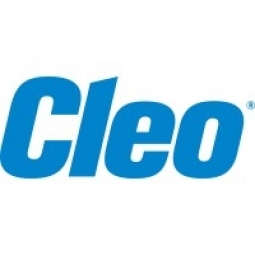Customer Company Size
Large Corporate
Region
- America
Country
- United States
Product
- EXTOL Business Integrator
- EXTOL Business Collaborator
- Home Grown ERP System
- Home Grown WMS System
Tech Stack
- EDI
- CSV
- XLS
- TXT
Implementation Scale
- Enterprise-wide Deployment
Impact Metrics
- Productivity Improvements
- Cost Savings
- Customer Satisfaction
Technology Category
- Application Infrastructure & Middleware - Data Exchange & Integration
- Application Infrastructure & Middleware - Middleware, SDKs & Libraries
Applicable Functions
- Logistics & Transportation
- Procurement
- Warehouse & Inventory Management
Use Cases
- Supply Chain Visibility
- Inventory Management
- Demand Planning & Forecasting
Services
- System Integration
- Software Design & Engineering Services
About The Customer
Mount Vernon Mills, Inc. is a diversified manufacturer of textile and related products for the apparel, industrial, institutional and commercial markets. They are headquartered in Mauldin, South Carolina and have approximately 3,600 employees. The enterprise is comprised of seven integrated divisions, operate 14 production facilities in the U.S., and provide distribution services to customers in Mexico, Central America and the Caribbean. Their customers include big names such as Wrangler and Lee. Many of their suppliers are small businesses and family-owned providers of raw materials such as cotton, or finishing services.
The Challenge
Mount Vernon Mills (MVM) is a diversified manufacturer of textile and related products for various markets. They have a central philosophy of doing whatever it takes to satisfy the customer, which includes end-to-end automation of the exchange of complex business processes and transaction data. However, they faced challenges with their legacy EDI system which had become extremely expensive in terms of labor for the custom code needed to both use and maintain the software system. They also had to deal with 'Swivel Chair Integration', a time-consuming and error-prone process of manually transferring data from one application to another.
The Solution
MVM adopted the EXTOL Business Integrator (EBI), which enables their existing team to manage complex integration of both non-EDI formats, such as spreadsheets, flat files and XML, in addition to standard EDI formats. This solution allowed them to integrate disparate systems, respond rapidly to market and customer requirements and eliminate inefficiencies in their order to cash cycles. With EBI, XLS or CSV file data from suppliers is automatically integrated with MVM’s back-end systems, no different than a traditional X12 EDI transaction. They also automated 9 non-EDI trading partners, with whom they exchange approximately 215 messages per month, in the form of CSV, XLS or TXT files containing order, consignment, shipment and invoice data.
Operational Impact
Quantitative Benefit

Case Study missing?
Start adding your own!
Register with your work email and create a new case study profile for your business.
Related Case Studies.

Case Study
Remote Temperature Monitoring of Perishable Goods Saves Money
RMONI was facing temperature monitoring challenges in a cold chain business. A cold chain must be established and maintained to ensure goods have been properly refrigerated during every step of the process, making temperature monitoring a critical business function. Manual registration practice can be very costly, labor intensive and prone to mistakes.

Case Study
Hospital Inventory Management
The hospital supply chain team is responsible for ensuring that the right medical supplies are readily available to clinicians when and where needed, and to do so in the most efficient manner possible. However, many of the systems and processes in use at the cancer center for supply chain management were not best suited to support these goals. Barcoding technology, a commonly used method for inventory management of medical supplies, is labor intensive, time consuming, does not provide real-time visibility into inventory levels and can be prone to error. Consequently, the lack of accurate and real-time visibility into inventory levels across multiple supply rooms in multiple hospital facilities creates additional inefficiency in the system causing over-ordering, hoarding, and wasted supplies. Other sources of waste and cost were also identified as candidates for improvement. Existing systems and processes did not provide adequate security for high-cost inventory within the hospital, which was another driver of cost. A lack of visibility into expiration dates for supplies resulted in supplies being wasted due to past expiry dates. Storage of supplies was also a key consideration given the location of the cancer center’s facilities in a dense urban setting, where space is always at a premium. In order to address the challenges outlined above, the hospital sought a solution that would provide real-time inventory information with high levels of accuracy, reduce the level of manual effort required and enable data driven decision making to ensure that the right supplies were readily available to clinicians in the right location at the right time.










